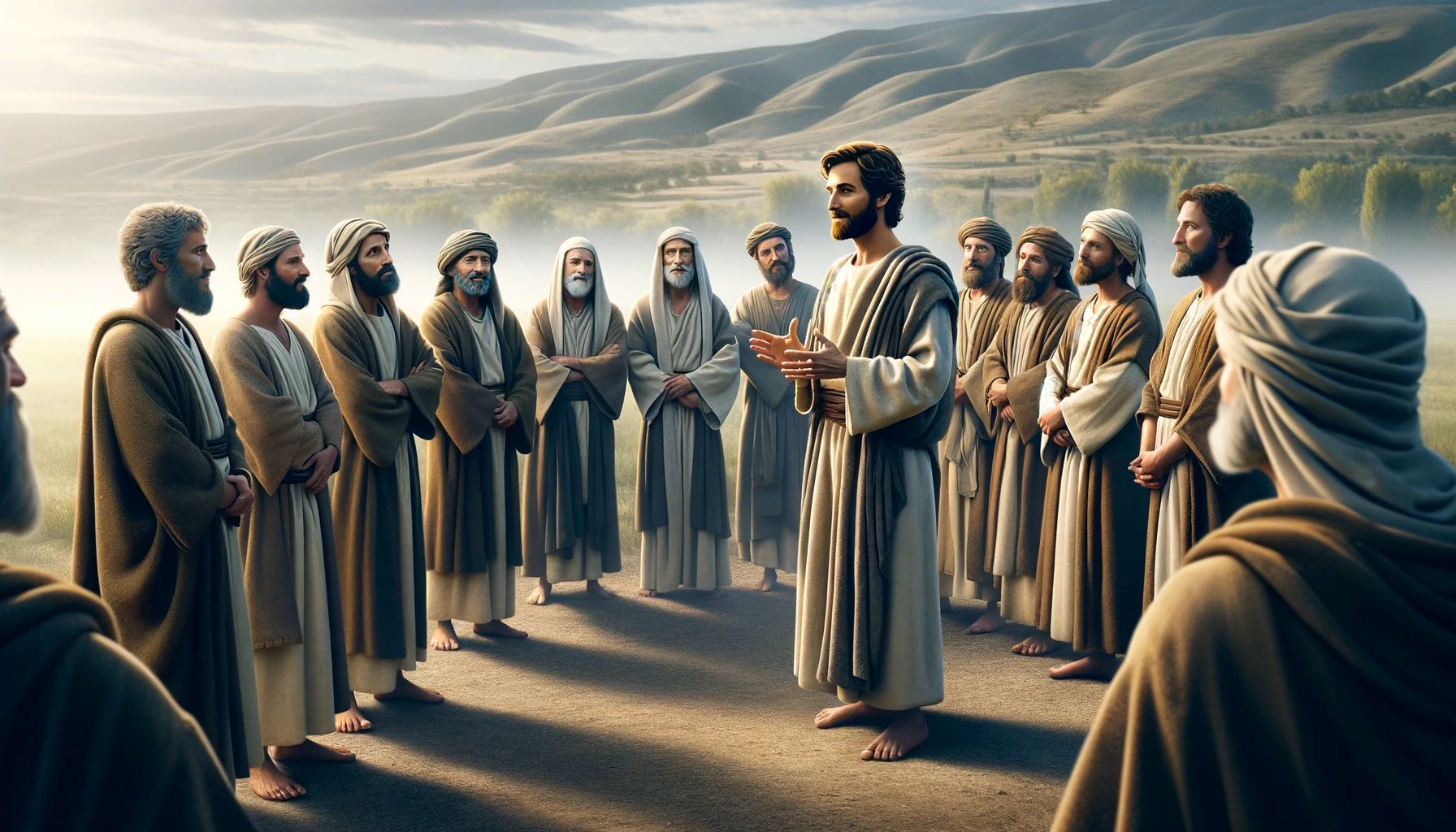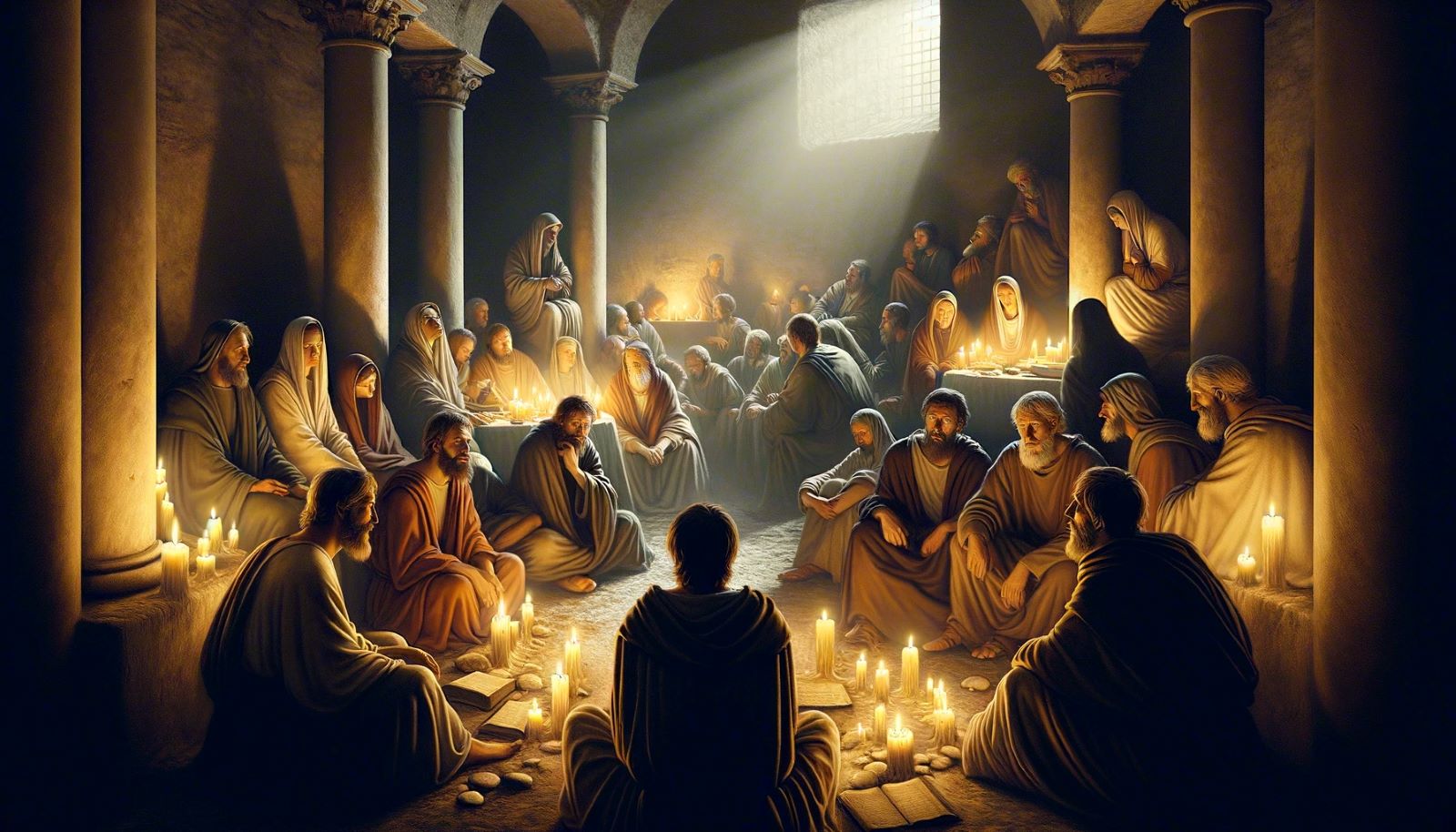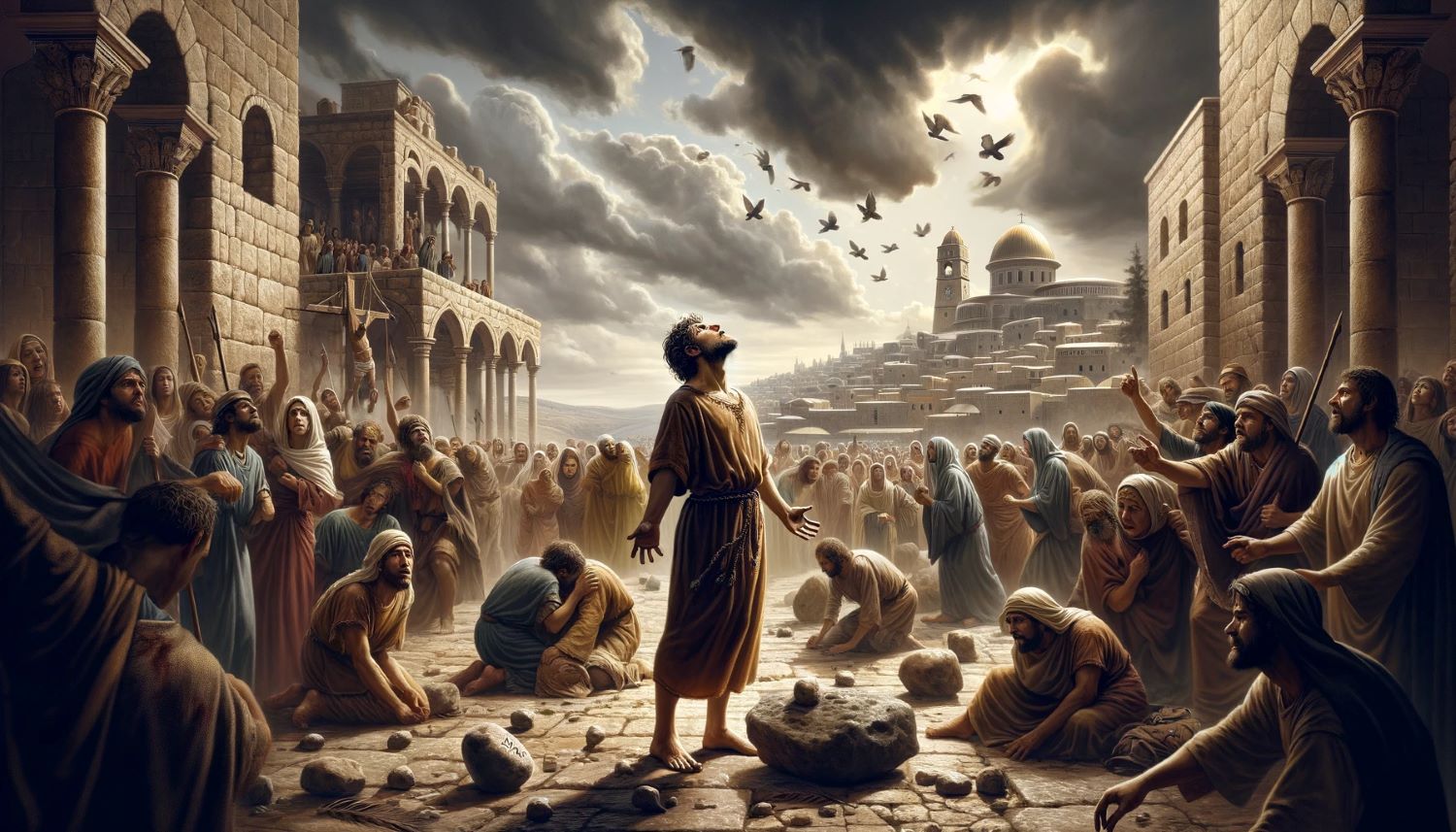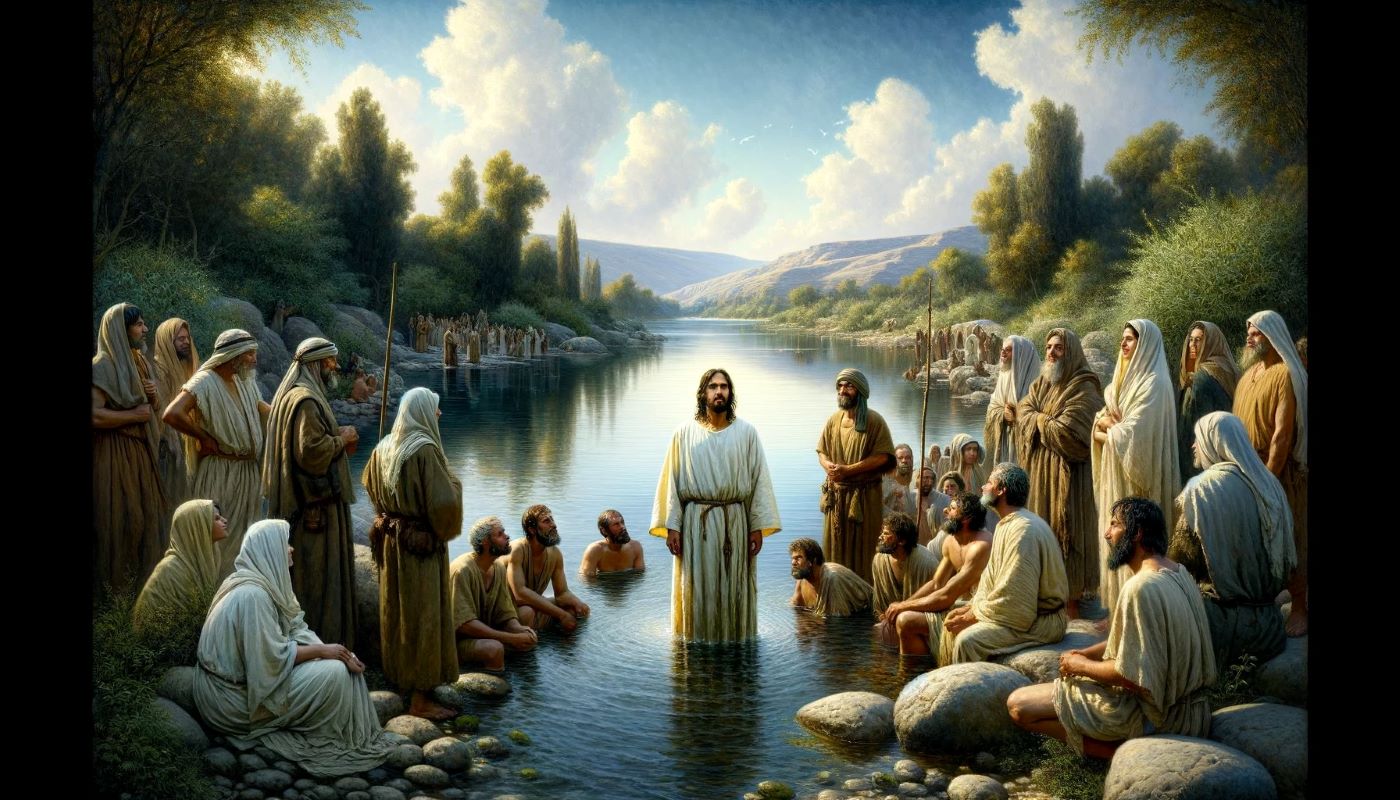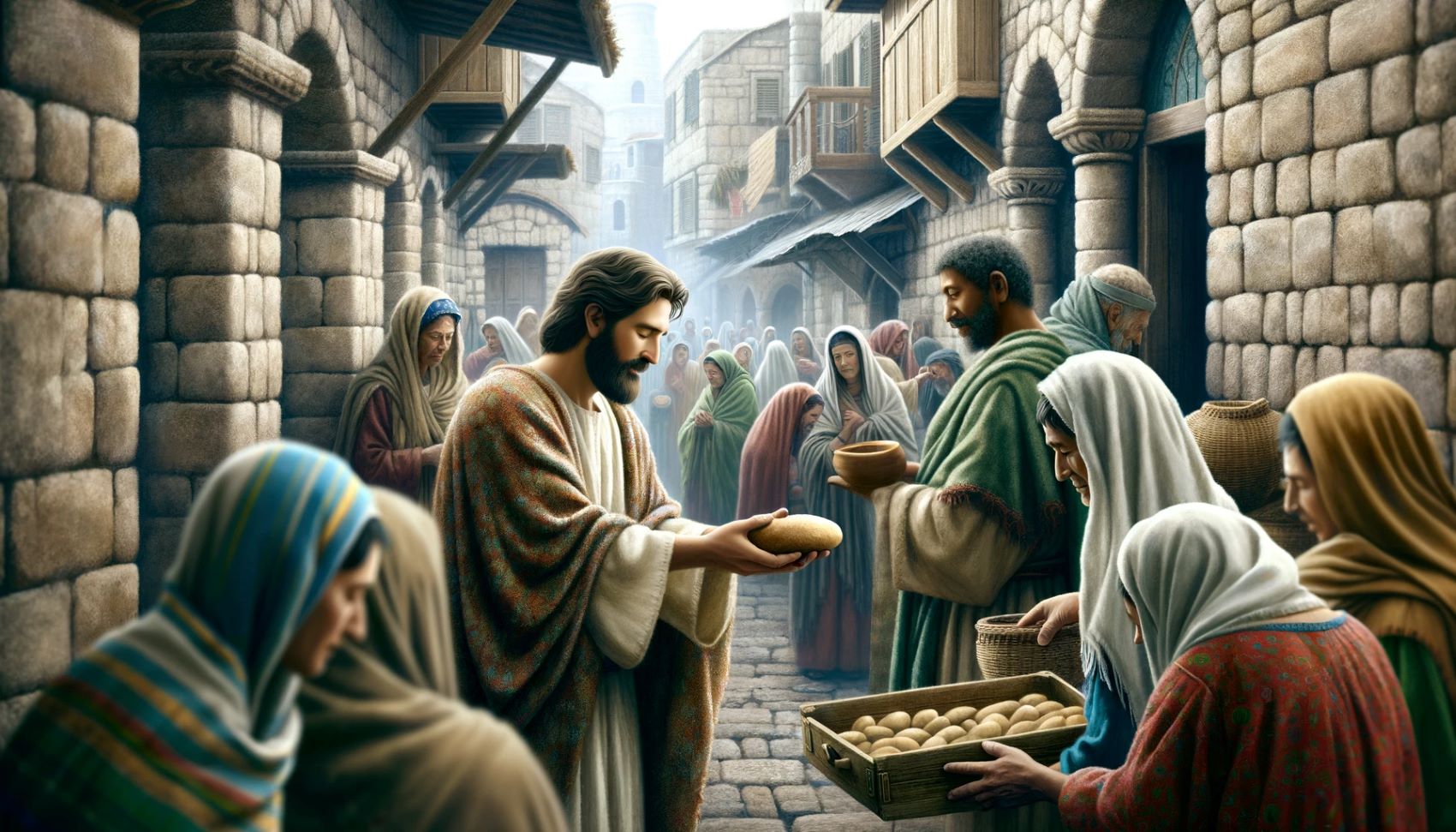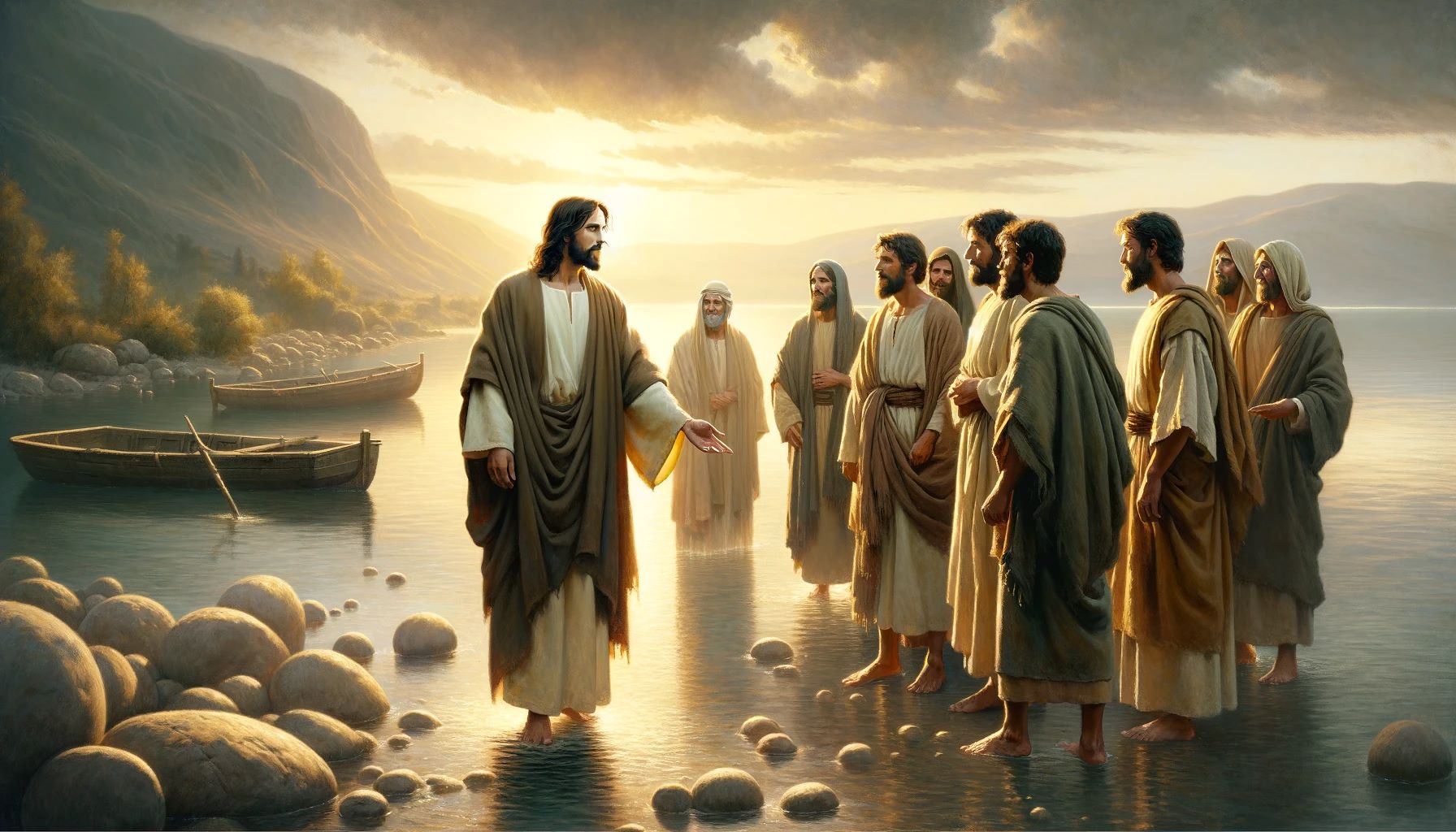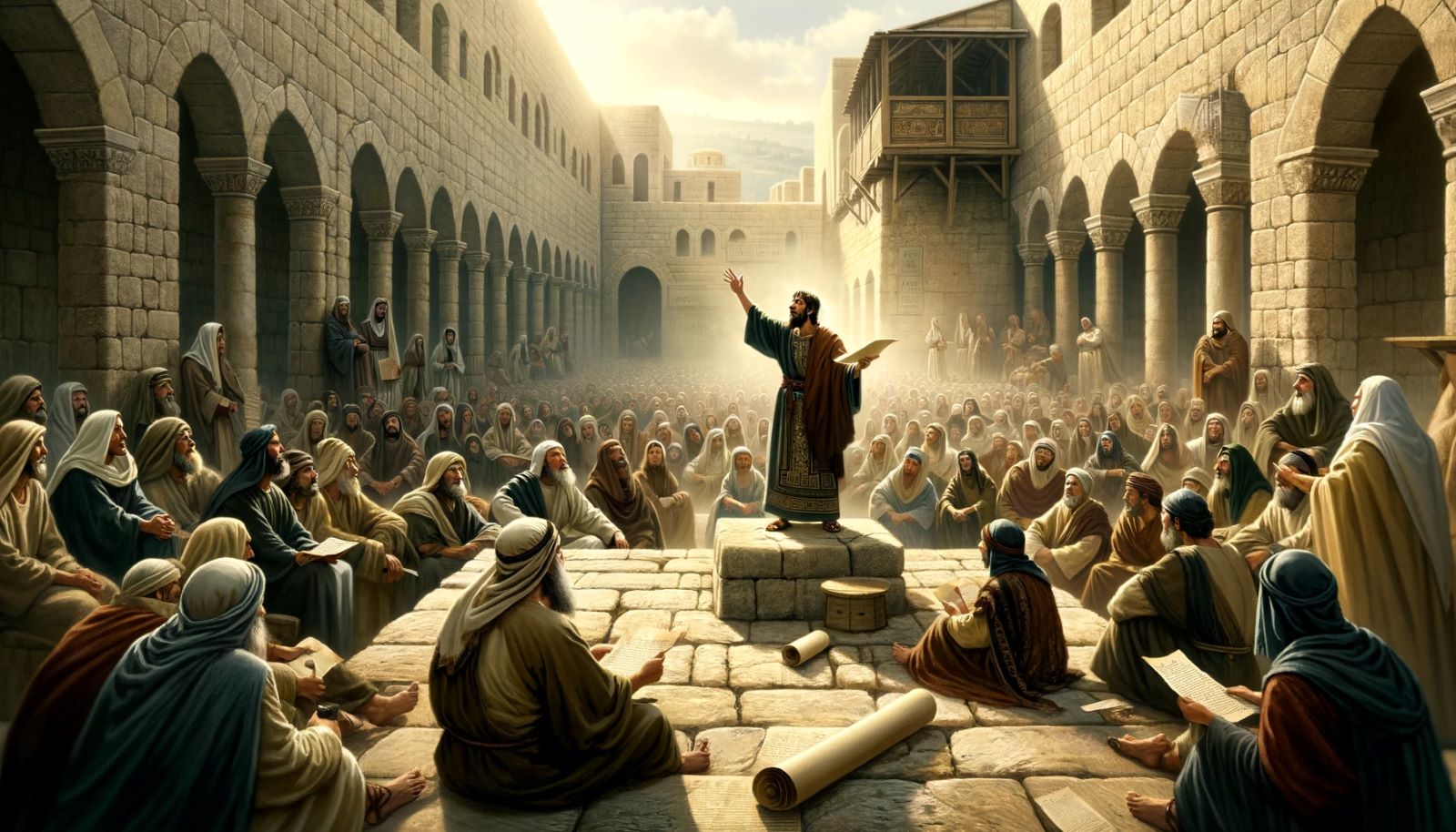Home>Bible Facts>Who Are The Apostles Of Today


Bible Facts
Who Are The Apostles Of Today
Published: February 22, 2024
Ericka Andersen, an editor at Christian.net, expertly merges digital strategy with content creation, focusing on faith and societal issues. Her communication skills enhance the platform's engaging narratives, fostering meaningful dialogue on belief's impact on society.
Discover the true identity and role of modern-day apostles in the context of biblical facts. Explore the significance of apostles in today's world and their relevance in the Christian faith.
(Many of the links in this article redirect to a specific reviewed product. Your purchase of these products through affiliate links helps to generate commission for Christian.net, at no extra cost. Learn more)
Table of Contents
Introduction
The term "apostle" has deep roots in Christian history, tracing back to the twelve disciples chosen by Jesus Christ to spread his teachings. These individuals played a pivotal role in the establishment and growth of the early Christian church, and their legacy continues to influence modern-day Christianity. While the original apostles lived in a different era, the concept of apostleship remains relevant today, albeit in a different form.
In contemporary Christianity, the term "apostle" is often used to describe individuals who demonstrate exceptional leadership, spiritual insight, and a profound commitment to advancing the gospel. These modern-day apostles are not viewed as direct successors to the original twelve disciples but are recognized for their significant contributions to the church and their unwavering dedication to fulfilling the Great Commission.
The role of apostles in the modern church extends beyond traditional religious titles; it encompasses a dynamic and multifaceted responsibility to guide, inspire, and nurture the faith of believers. As the landscape of Christianity continues to evolve, the presence of apostolic figures serves as a source of strength and guidance for the global body of believers.
In the subsequent sections of this article, we will delve into the characteristics that define the apostles of today, explore their role in the contemporary church, examine examples of modern-day apostles, and shed light on the challenges they face in fulfilling their calling. By gaining a deeper understanding of the significance and complexities of apostleship in the present age, we can appreciate the enduring impact of these influential figures and the profound relevance of their mission in today's world.
Read more: Who Are The Apostles Today
Characteristics of the Apostles of Today
The apostles of today embody a diverse array of characteristics that distinguish them as influential and impactful figures within the modern Christian landscape. These individuals exhibit a deep sense of spiritual conviction, unwavering dedication to serving others, and a profound commitment to advancing the gospel message. Their unique attributes and qualities enable them to effectively navigate the complexities of contemporary society while upholding the timeless principles of faith and discipleship.
-
Spiritual Insight and Discernment: Modern-day apostles possess a heightened spiritual insight and discernment, allowing them to perceive and interpret the divine will with clarity and wisdom. This keen awareness enables them to provide guidance and direction to believers, addressing complex spiritual challenges and nurturing the growth of faith communities.
-
Visionary Leadership: Apostles of today demonstrate visionary leadership, envisioning and implementing strategies to expand the reach of the gospel and foster spiritual transformation. Their ability to inspire and mobilize others toward a shared mission reflects their visionary approach to advancing the kingdom of God in a rapidly changing world.
-
Commitment to Service: A hallmark of modern apostles is their unwavering commitment to serving others. They exemplify servant leadership, prioritizing the needs of the community and demonstrating compassion, humility, and selflessness in their interactions with others.
-
Global Perspective: In an increasingly interconnected world, modern apostles exhibit a global perspective, recognizing the universal nature of the Christian faith and the importance of engaging with diverse cultures and communities. Their inclusive approach fosters unity and collaboration across geographical and cultural boundaries.
-
Courage and Resilience: Apostles of today display courage and resilience in the face of adversity, standing firm in their convictions and persevering through challenges. Their steadfastness serves as a source of inspiration and encouragement for believers navigating their own trials and tribulations.
-
Innovative Communication: Embracing modern communication tools and platforms, modern-day apostles leverage innovative means to share the gospel message, utilizing technology and media to reach a broad and diverse audience with relevance and impact.
-
Empowerment and Equipping: These apostolic figures are dedicated to empowering and equipping the next generation of leaders and disciples, investing in mentorship, training, and discipleship to ensure the continuity and vitality of the church's mission.
The apostles of today embody a rich tapestry of qualities and virtues that enable them to navigate the complexities of the modern world while upholding the timeless principles of faith and discipleship. Their influence extends far beyond traditional religious roles, shaping the trajectory of the global Christian community and inspiring believers to embrace a deeper, more meaningful expression of their faith.
The Role of Apostles in the Modern Church
In the modern church, apostles play a pivotal role in shaping the spiritual landscape and guiding the trajectory of Christian communities worldwide. Their influence extends beyond traditional ecclesiastical titles, encompassing a dynamic and multifaceted responsibility to provide visionary leadership, spiritual guidance, and strategic direction. The role of apostles in the contemporary church is characterized by several key functions that are essential to the vitality and growth of the body of believers.
1. Visionary Leadership and Strategic Oversight
Modern-day apostles are entrusted with the task of providing visionary leadership and strategic oversight to the church. They are called to discern and articulate a compelling vision for the advancement of the gospel, guiding believers toward a deeper understanding of their purpose and mission. Through strategic planning and discerning insight, apostles navigate the complexities of the modern world, identifying opportunities for spiritual growth and expansion while addressing the evolving needs of the community.
2. Spiritual Equipping and Empowerment
Apostles in the modern church are committed to equipping and empowering believers for effective ministry and service. They invest in the development of spiritual gifts, leadership capabilities, and discipleship training, nurturing a culture of empowerment and mentorship within the faith community. By fostering a climate of spiritual growth and maturity, apostles enable individuals to fulfill their God-given potential and contribute meaningfully to the collective mission of the church.
Read more: Who Was The Leader Of The Apostles
3. Promoting Unity and Collaboration
Central to the role of apostles is the promotion of unity and collaboration within the body of believers. They work tirelessly to bridge cultural, denominational, and generational divides, fostering a spirit of harmony and cooperation that transcends barriers and fosters a sense of interconnectedness within the global Christian community. By promoting a culture of unity, apostles cultivate an environment where diverse perspectives and gifts converge to advance the kingdom of God.
4. Nurturing Spiritual Growth and Discipleship
Apostles are deeply invested in nurturing spiritual growth and discipleship, guiding believers toward a deeper understanding of the Christian faith and the transformative power of the gospel. Through teaching, mentoring, and pastoral care, they facilitate the development of mature and resilient disciples who are equipped to navigate the complexities of contemporary society while remaining steadfast in their faith.
5. Advancing the Mission of the Great Commission
At the heart of their role, apostles are steadfastly committed to advancing the mission of the Great Commission, proclaiming the gospel message and making disciples of all nations. They actively engage in evangelism, missions, and outreach initiatives, leveraging their influence and resources to extend the reach of the gospel and bring hope to those in need.
In summary, the role of apostles in the modern church is characterized by visionary leadership, spiritual equipping, unity-building, discipleship nurturing, and a relentless commitment to advancing the mission of the Great Commission. Their influence and impact resonate across diverse cultures and contexts, shaping the collective identity and purpose of the global body of believers in profound and transformative ways.
Examples of Modern-Day Apostles
In the contemporary Christian landscape, numerous individuals exemplify the qualities and characteristics of modern-day apostles, demonstrating unwavering commitment to advancing the gospel and shaping the spiritual trajectory of the global church. These exemplary figures embody visionary leadership, spiritual insight, and a profound dedication to serving others, leaving an indelible mark on the faith community. While the following examples represent a fraction of the diverse and impactful apostolic figures in the modern church, their contributions serve as a testament to the enduring relevance and influence of apostleship in today's world.
Read more: Who Were The Super Apostles
1. Bishop T.D. Jakes
Bishop T.D. Jakes, the founder and senior pastor of The Potter's House, exemplifies visionary leadership and a deep commitment to empowering believers. His influential ministry transcends geographical boundaries, reaching millions through his dynamic preaching, impactful books, and global humanitarian initiatives. Bishop Jakes' emphasis on spiritual empowerment and social transformation reflects the apostolic call to equip and mobilize individuals for impactful ministry and service.
2. Dr. Heidi Baker
Dr. Heidi Baker, co-founder of Iris Global, embodies a profound dedication to missions and compassionate outreach. Her apostolic ministry extends to some of the most impoverished and marginalized communities, where she and her team demonstrate the love of Christ through practical aid, discipleship, and the establishment of sustainable community development projects. Dr. Baker's unwavering commitment to holistic transformation and evangelistic fervor exemplifies the apostolic mandate to advance the mission of the Great Commission in diverse cultural contexts.
3. Apostle Guillermo Maldonado
Apostle Guillermo Maldonado, the founder of King Jesus International Ministry, exemplifies apostolic leadership characterized by spiritual insight and global impact. His ministry spans continents, fostering a culture of spiritual empowerment, healing, and deliverance. Apostle Maldonado's emphasis on equipping believers for supernatural ministry and his commitment to advancing the kingdom of God through evangelism and discipleship reflect the apostolic call to nurture spiritual growth and advance the gospel message with transformative power.
4. Apostle Jane Hamon
Apostle Jane Hamon, co-founder of Vision Church @ Christian International, embodies apostolic leadership marked by prophetic insight and strategic wisdom. Her ministry focuses on equipping and activating believers in the prophetic gifts, fostering a culture of spiritual discernment and strategic intercession. Apostle Hamon's commitment to nurturing prophetic voices and guiding believers toward a deeper understanding of God's purposes reflects the apostolic call to provide visionary leadership and spiritual equipping for the contemporary church.
These examples represent a fraction of the diverse and impactful apostolic figures in the modern church, each embodying the timeless virtues and qualities of apostleship while addressing the unique challenges and opportunities of the contemporary world. Their unwavering dedication to advancing the gospel, nurturing spiritual growth, and empowering believers serves as a source of inspiration and encouragement, shaping the collective identity and purpose of the global body of believers in profound and transformative ways.
Read more: Couple Who Lied To Apostles
The Challenges Faced by Apostles Today
The apostles of today encounter a myriad of challenges as they navigate the complexities of the modern world while fulfilling their calling to advance the gospel and nurture the faith community. These challenges encompass a broad spectrum of internal and external pressures, requiring apostolic figures to demonstrate resilience, wisdom, and unwavering faith in the face of adversity.
1. Cultural and Societal Shifts
The rapidly evolving cultural and societal landscape presents a significant challenge for modern-day apostles. They must grapple with shifting moral values, ideological diversity, and the pervasive influence of secularism. Navigating these dynamics while upholding the timeless truths of the gospel demands a delicate balance of cultural relevance and unwavering biblical fidelity.
2. Spiritual Warfare and Opposition
Apostles are confronted with spiritual warfare and opposition as they endeavor to advance the kingdom of God. The forces of darkness actively resist their efforts, seeking to undermine their influence and disrupt the spread of the gospel. Spiritual discernment, prayerful vigilance, and steadfast reliance on God's power are essential for navigating these spiritual battles.
3. Leadership and Discipleship Challenges
The responsibility of equipping and empowering a diverse body of believers presents formidable leadership and discipleship challenges for apostolic figures. They must navigate the complexities of nurturing spiritual growth, resolving conflicts, and fostering unity within the faith community. Balancing the demands of pastoral care, mentorship, and strategic leadership requires wisdom and discernment.
Read more: Who Created Apostles Creed
4. Global Uncertainty and Sociopolitical Pressures
The global landscape is marked by uncertainty, sociopolitical tensions, and humanitarian crises, posing significant challenges for apostles engaged in missions and outreach. They must address the needs of vulnerable populations, navigate geopolitical complexities, and respond to humanitarian emergencies while upholding the principles of compassion and justice.
5. Skepticism and Criticism
Apostles often face skepticism and criticism from both within and outside the faith community. Their bold proclamation of the gospel and unwavering commitment to biblical truth may invite scrutiny and opposition. Navigating these challenges requires humility, grace, and a steadfast focus on the enduring impact of their ministry.
6. Emotional and Spiritual Exhaustion
The demands of apostolic ministry can lead to emotional and spiritual exhaustion. Balancing the weight of pastoral care, global outreach, and strategic leadership can take a toll on their well-being. Cultivating resilience, seeking support, and prioritizing self-care are essential for navigating the emotional and spiritual challenges inherent in apostolic service.
In the face of these formidable challenges, modern-day apostles draw strength from their deep faith, unwavering commitment to the gospel, and reliance on the empowering presence of the Holy Spirit. Their resilience, courage, and steadfast dedication to advancing the kingdom of God amidst adversity serve as a testament to the enduring relevance and impact of apostleship in the contemporary world.
Conclusion
In conclusion, the concept of apostleship, while rooted in the historical context of the early Christian church, remains profoundly relevant in the contemporary landscape of Christianity. The apostles of today embody a rich tapestry of qualities and virtues, including visionary leadership, spiritual insight, and unwavering commitment to advancing the gospel. Their role in the modern church encompasses visionary leadership, spiritual equipping, unity-building, discipleship nurturing, and a relentless commitment to advancing the mission of the Great Commission.
Despite the formidable challenges they face, modern-day apostles exemplify resilience, wisdom, and unwavering faith as they navigate the complexities of the modern world. Their unwavering dedication to advancing the gospel, nurturing spiritual growth, and empowering believers serves as a source of inspiration and encouragement, shaping the collective identity and purpose of the global body of believers in profound and transformative ways.
As we reflect on the enduring impact of apostleship in the contemporary world, it becomes evident that the apostles of today play a pivotal role in shaping the spiritual landscape and guiding the trajectory of Christian communities worldwide. Their influence extends beyond traditional ecclesiastical titles, encompassing a dynamic and multifaceted responsibility to provide visionary leadership, spiritual guidance, and strategic direction.
The examples of modern-day apostles such as Bishop T.D. Jakes, Dr. Heidi Baker, Apostle Guillermo Maldonado, and Apostle Jane Hamon serve as a testament to the enduring relevance and influence of apostleship in today's world. Their unwavering commitment to advancing the gospel, nurturing spiritual growth, and empowering believers serves as a source of inspiration and encouragement, shaping the collective identity and purpose of the global body of believers in profound and transformative ways.
In the face of formidable challenges, modern-day apostles draw strength from their deep faith, unwavering commitment to the gospel, and reliance on the empowering presence of the Holy Spirit. Their resilience, courage, and steadfast dedication to advancing the kingdom of God amidst adversity serve as a testament to the enduring relevance and impact of apostleship in the contemporary world.
In essence, the apostles of today continue to embody the timeless virtues and qualities of apostleship while addressing the unique challenges and opportunities of the contemporary world. Their unwavering commitment to advancing the gospel, nurturing spiritual growth, and empowering believers serves as a source of inspiration and encouragement, shaping the collective identity and purpose of the global body of believers in profound and transformative ways.
